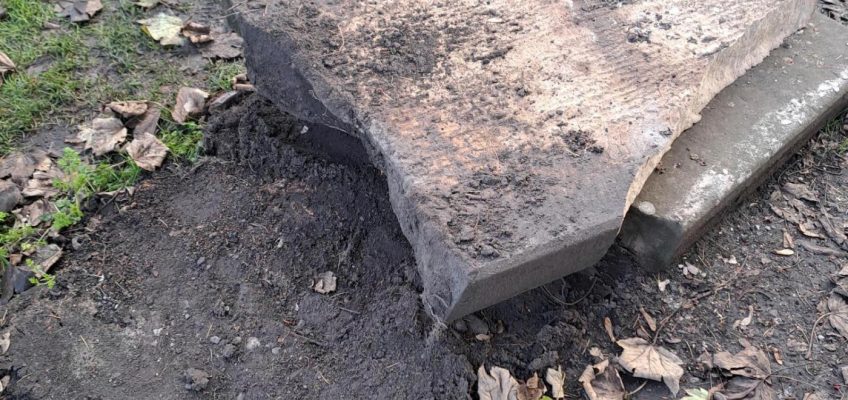Julie Appleby | KFF Health News
Unauthorized switching of Affordable Care Act plans appears to have tapered off in recent weeks based on an almost one-third drop in casework associated with consumer complaints, say federal regulators. The Centers for Medicare & Medicaid Services, which oversees the ACA, credits steps taken to thwart enrollment and switching problems that triggered more than 274,000 complaints this year through August.
Now, the annual ACA open enrollment period that began Nov. 1 poses a real-world test: Will the changes curb fraud by rogue agents or brokerages without unduly slowing the process of enrolling or reducing the total number of sign-ups for 2025 coverage?
“They really have this tightrope to walk,” said Sabrina Corlette, co-director of the Center on Health Insurance Reforms at Georgetown University. “The more you tighten it up to prevent fraud, the more barriers there are that could inhibit enrollment among those who need the coverage.”
CMS said in July that some types of policy changes — those in which the agent is not “affiliated” with the existing plan — will face more requirements, such as a three-way call with the consumer, broker, and a healthcare.gov call center representative.
In August, the agency barred two of about a dozen private sector online-enrollment platforms from connecting with healthcare.gov over concerns related to improper switching.
And CMS has suspended 850 agents suspected of being involved in unauthorized plan-switching from accessing the ACA marketplace.
Still, the clampdown could add complexity to enrollment and slow the process. For example, a consumer might have to wait in a queue for a three-way call, or scramble to find a new agent because the one they previously worked with had been suspended.
Given that phone lines with healthcare.gov staff already get busy — especially during mid-December — agents and policy analysts advise consumers not to dally this year.
“Hit the ground running,” said Ronnell Nolan, president and CEO of Health Agents for America, a professional organization for brokers.
Meanwhile, reports are emerging that some rogue entities are already figuring out workarounds that could undermine some of the anti-fraud protections CMS put in place, Nolan said.
“Bottom line is: Fraud and abuse is still happening,” Nolan said.
Brokers assist the majority of people actively enrolling in ACA plans and are paid a monthly commission by insurers for their efforts. Consumers can compare plans or enroll themselves online through federal or state marketplace websites. They can also seek help from people called assisters or navigators — certified helpers who are not paid commissions. Under a “find local help” button on the federal and state ACA websites, consumers can search for nearby brokers or navigators.
CMS says it has “ramped up support operations” at its healthcare.gov marketplace call centers, which are open 24/7, in anticipation of increased demand for three-way calls, and it expects “minimal wait times,” said Jeff Wu, deputy director for policy of the CMS Center for Consumer Information and Insurance Oversight.
Wu said those three-way calls are necessary only when an agent or a broker not already associated with a consumer’s enrollment wants to change that consumer’s enrollment or end that consumer’s coverage. It does not apply to people seeking coverage for the first time.
Organizations paid by the government to offer navigator services have a dedicated phone line to the federal marketplace, and callers are not currently experiencing long waits, said Xonjenese Jacobs, director of Florida Covering Kids & Families, a program based at the University of South Florida that coordinates enrollment across the state through its Covering Florida navigator program.
Navigators can assist with the three-way calls if a consumer’s situation requires it.
“Because we have our quick line in, there’s no increased wait time,” Jacobs said.
The problem of unauthorized switches has been around for a while but took off during last year’s open enrollment season.
Brokers generally blamed much of the problem on the ease with which rogue agents can access ACA information in the federal marketplace, needing only a person’s name, date of birth, and state of residence. Though federal regulators have worked to tighten that access with the three-way call requirement, they stopped short of instituting what some agent groups say is needed: two-factor authentication, which could involve a code accessed by a consumer through a smartphone.
Unauthorized switches can lead to a host of problems for consumers, from higher deductibles to landing in new networks that do not include their preferred physicians or hospitals. Some people have received tax bills when unauthorized policies came with premium credits for which they did not qualify.
Unauthorized switches posed a political liability for the Biden administration, a blemish on two years of record ACA enrollment. The practice drew criticism from lawmakers on both sides of the aisle; Democrats demanded more oversight and punishment of rogue agents, while Republicans said fraud attempts were fueled by Biden administration moves that allowed for more generous premium subsidies and special enrollment periods. The fate of those enhanced subsidies, which are set to expire, will be decided by Congress next year as the Trump administration takes power. But the premiums and subsidies that come with 2025 plans that people are enrolling in now will remain in effect for the entire year.
The actions taken this year to thwart the unauthorized enrollments apply to the federal marketplace, used by 31 states. The remaining states and the District of Columbia run their own websites, with many having in place additional layers of security.
The story of Mayo Clinic’s second face transplant, a decade in the making
Feds suspend ACA marketplace access to companies accused of falsely promising ‘cash cards’
More foods are making us sick: What to know as foodborne outbreaks hit
At least 19 people are sick in Minnesota from ground beef tied to E. coli recall
Which health insurance plan may be right for you?
For its part, CMS says its efforts are working, pointing to the 30% drop in complaint casework. The agency also noted a 90% drop in the number of times an agent’s name was replaced by another’s, which it says indicates that it is tougher for rival agents to steal clients to gain the monthly commissions that insurers pay.
Still, the move to suspend 850 agents has drawn pushback from agent groups that initially brought the problem to federal regulators’ attention. They say some of those accused were suspended before getting a chance to respond to the allegations.
“There will be a certain number of agents and brokers who are going to be suspended without due process,” said Nolan, with the health agents’ group. She said that it has called for increased protections against unauthorized switching and that two-factor authentication, like that used in some state marketplaces or in the financial sector, would be more effective than what’s been done.
“We now have to jump through so many hoops that I’m not sure we’re going to survive,” she said of agents in general. “They are just throwing things against the wall to see what sticks when they could just do two-factor.”
The agency did not respond to questions asking for details about how the 850 agents suspended since July were selected, the states where they were located, or how many had their suspensions reversed after supplying additional information.




